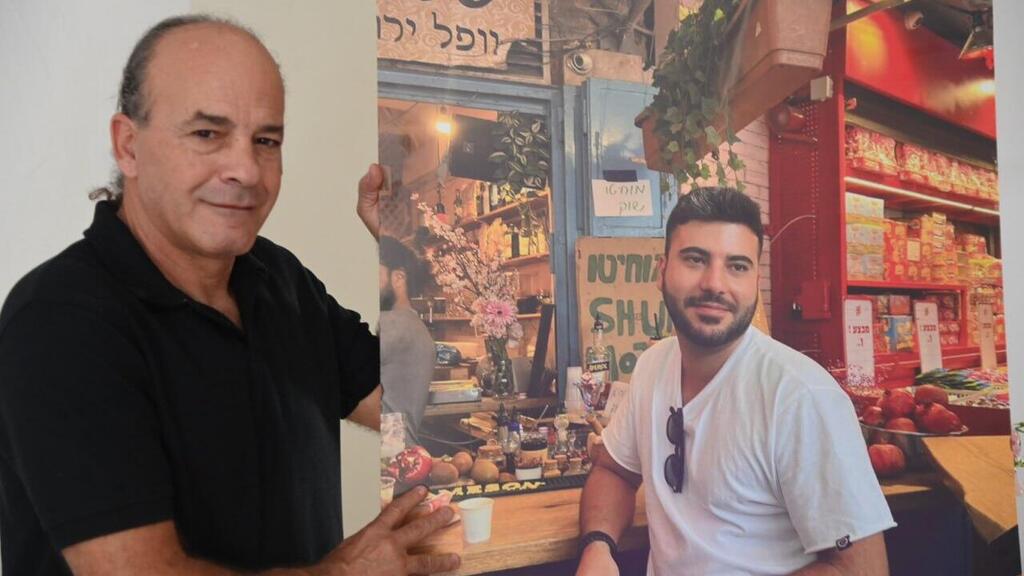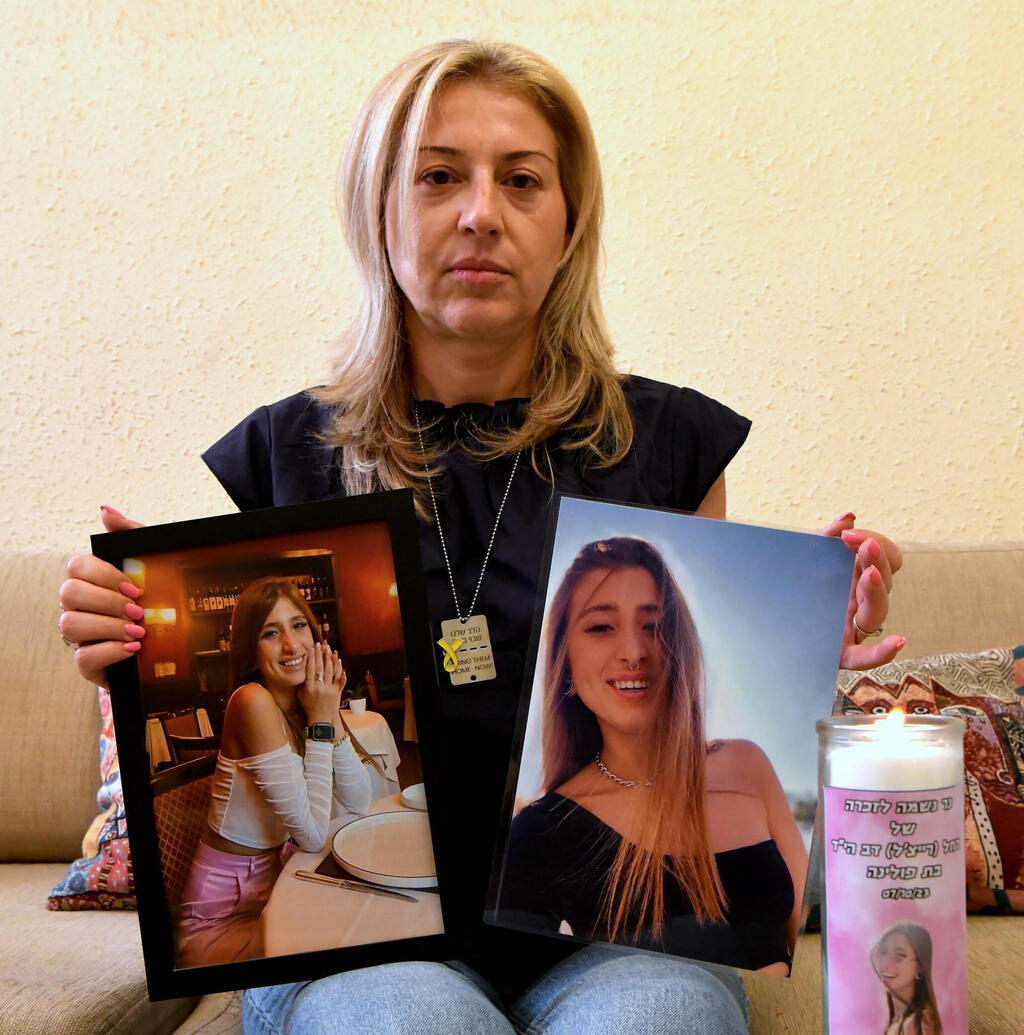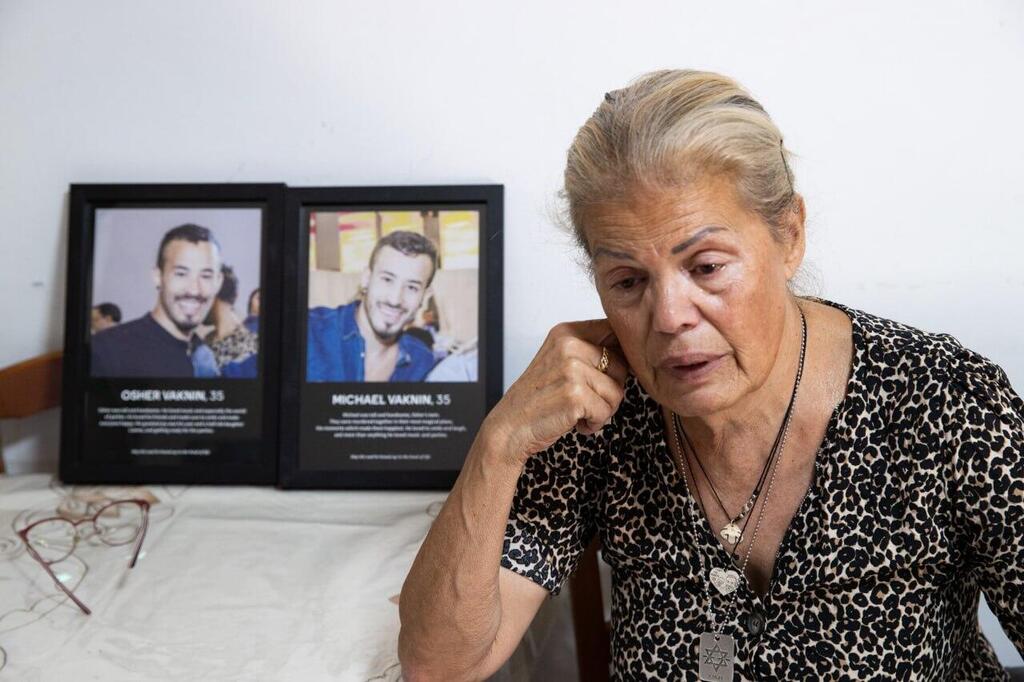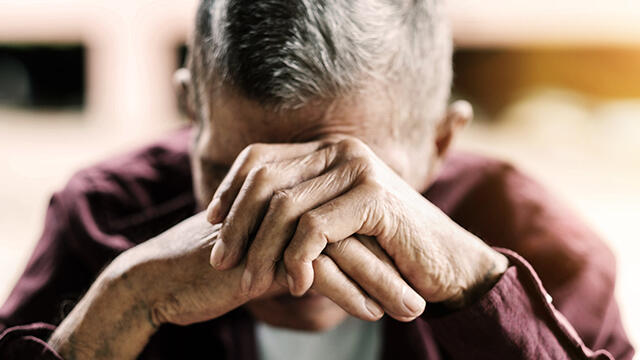Getting your Trinity Audio player ready...
The pain of losing a child is unbearable, and studies show it's the most difficult loss to recover from. It becomes exponentially more intense when it involves an only child, leaving the parents alone. According to data from Israel’s National Insurance Institute, 121 parents lost their loved ones and were left without any other children since October 7. This is the story of three of them.
David Levy, father of Lidor
Since the murder of Lidor Levy, 27, and his girlfriend, Nitzan Rachum near the site of the Nova Music Festival, his parents have been living in the couple's home. "I can't explain it," David, Lidor's father, says. "Everything in life feels strange since then. Lidor's motorcycle is still in the living room, his wardrobe is still neatly arranged. Everything is just as it was. I went to our house once or twice to get a few things and I couldn't even go inside."
5 View gallery
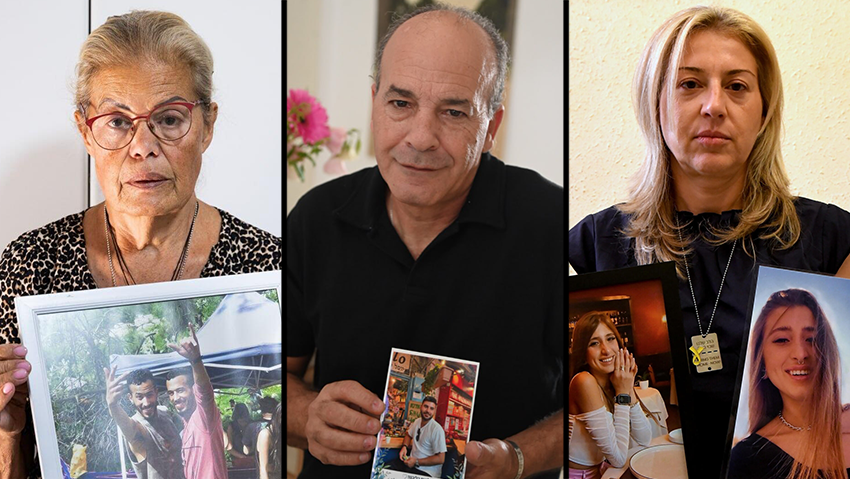

Rachel Vaknin, David Levy, Polina Dov
(Photo: Alex Kolomoisky, Yair Sagi, Nachum Segal)
"Nitzan was pregnant, in her fourth month,” he says. “We were going to have a grandchild. The whole extended family gathered on the evening of Simchat Torah and that's when they shared the news about the pregnancy. Everyone jumped on me, calling me grandpa; it was such an exciting moment. Lidor was everything we had and now we have nothing."
When the massacre at the Nova festival began, Lidor and Nitzan fled and managed to reach a shelter near Re'im. "We didn't get to speak to him that morning," David says. "We know Nitzan spoke to her mother and said they were being shot at.”
“We searched for any clue for days, trying to get information. We already knew what had happened in our hearts, but we kept hoping it wasn't true, thinking maybe he was taken hostage. Everything was racing through our minds. We got the news on Monday,” he added.
"The days are incredibly difficult," he describes. "We're doing everything on autopilot. There's no desire to do anything, not even eat food. I don't want anything. My wife, who has cancer, has lost at least 10 kilograms. I feel as if we're still living on October 7 even now.”
“Lidor was our only son and I think it's the greatest pain there is. Everything I did in life was for him. Now, I feel half alive. I fight to change my thoughts all day long, to keep from falling into an abyss.”
Polina Dov, mother of Racheli
When reports of the massacre near the Gaza border began coming in on the morning of October 7, Polina Dov, the mother of Racheli, decided to drive from her home near Haifa to Kibbutz Re'im to look for her.
"I didn't know she'd gone to the Nova festival until that morning," she says. "I woke up around 8:30 a.m. and saw a message from her that had come in at 6:51 a.m.: 'Mom, there's shooting. We were at the party, we're running home.' I tried calling her, sent messages and she didn't answer. I decided to go and save my daughter."
Polina set out with her husband and their friend. "During the drive, I spoke with her friends to try to figure out where she was," she recalls. "Around 11:00 a.m., my brother sent me a message with a photo he found on Telegram with Arabic writing on it. It showed Racheli in a car, injured.”
“I'm a nurse by profession, so I had to understand the situation, but my brain wasn’t working at that moment. I only wanted to save her. Now I can say that it was clear she wouldn’t survive from the first glance of the photo."
It was only by the afternoon that Polina managed to get the phone number of one of the two friends who were with Racheli. "They told me that Racheli was injured and that they were losing her," she says.
"I didn’t know she was already gone by then. One of her friends was also injured. I begged them to keep her warm, to put something on the wound. As we got closer to the area, we encountered a police blockade trying to stop us. I remember screaming and kicking them, saying my daughter was there and they just let us go. It looked like a battlefield. We drove past bodies, missiles and gunfire everywhere."
Polina later learned that Racheli tried to escape with her two friends when the attack started. They encountered terrorists dressed in IDF uniforms and their car was shot at. Racheli, who was sitting in the back, ducked to hide and a bullet that entered through the door struck her below the armpit. They managed to get off the road, drive to a forest near Kisufim and hide there, but Racheli succumbed to her wounds shortly after.
"We met a Maglan unit on the way to Kisufim," Polina says. "I convinced them to send a rescue team, and I got a message at 19:08 p.m. saying they had picked them up in a jeep. I believed she was alive until the very last moment. I went from hospital to hospital looking for my daughter until Tuesday.”
“That day, I went to the police to give a DNA sample and then returned home. In the afternoon, there was a knock on the door and they said she had been identified. I couldn’t save Racheli, but we managed to save her two friends."
Racheli was 25 years old. "Racheli was a joyful, charismatic child, a true freedom fighter," Polina describes. "Everyone talked about her unique laughter. When she was 14, her father was murdered by someone who was mentally ill.”
“It was tough for her as an only child, but she grew from it, from the pain. She was strong, unbeatable. I miss her but I feel her presence all the time. I know she's watching over us and she gives me strength despite the hardship."
Rachel Vaknin, mother of Osher and Michael
Since the murder of her twin sons, Osher and Michael Vaknin, 35, it's been hard for their mother, Rachel, to stay at home. "I’m overwhelmed with grief," she explains. "They lived here with me and we were very close. I can’t be here since they died. It’s too hard to be alone."
They were each other's best friends. Born together, raised together, worked together and met their end together. "They were one in two bodies," Rachel describes, "one couldn’t live without the other. They argued, they fought, they loved, they hugged.”
“They did everything together. They organized the Nova festival with Elkana Bohbot, who’s still being held captive in Gaza. They knew how to bring joy to people and they did it in the best way possible."
She has one regret: "I’m so sorry I didn’t hug and kiss them tightly when they left the house for the party on Friday. I only told them to take care of themselves and that was it. They answered, ‘Everything will be fine, Mom,’ and left with their friends. Some managed to escape and return, and some were murdered along with them.”
“That morning, after I saw the chaos on television, I called them and sent so many messages. I asked Michael to look after Osher and Osher to look after Michael. Osher didn’t answer me. Michael did and he just said, ‘Mom.’ He was probably hiding somewhere."
Now she’s alone. "It hurts so much," Rachel says. "They were angels who spread joy, love and peace at home. Everyone loved them. I miss their laughter, their hugs and their kisses. I pray they send me strength and health to keep living and continue remembering them until I’ll see them again one day."
‘A vast void’
"Of all experiences of grief, the loss of a child is the most difficult and there's research to back this up," explains clinical social worker and psychotherapist Dina Dror from Elah Center NGO which provides psychological support in cases of loss and trauma.
"Parents aren't supposed to outlive their children by nature. A loss that leaves parents without any children creates a vast void in their lives, leaving them with a profound sense of emptiness, sadness, anger, the physical pain of absence, and an emotional pain that’s incredibly hard to bear. Coping with grief is especially difficult and complex in such cases," according to Dror.
"From our experience in treating and supporting bereaved families, I can say that parents say the pain and longing persist and don’t go away, but they stop confronting it every day over time. Even if it seems impossible now, there’s life in a different reality within this sea of pain."
Get the Ynetnews app on your smartphone:



